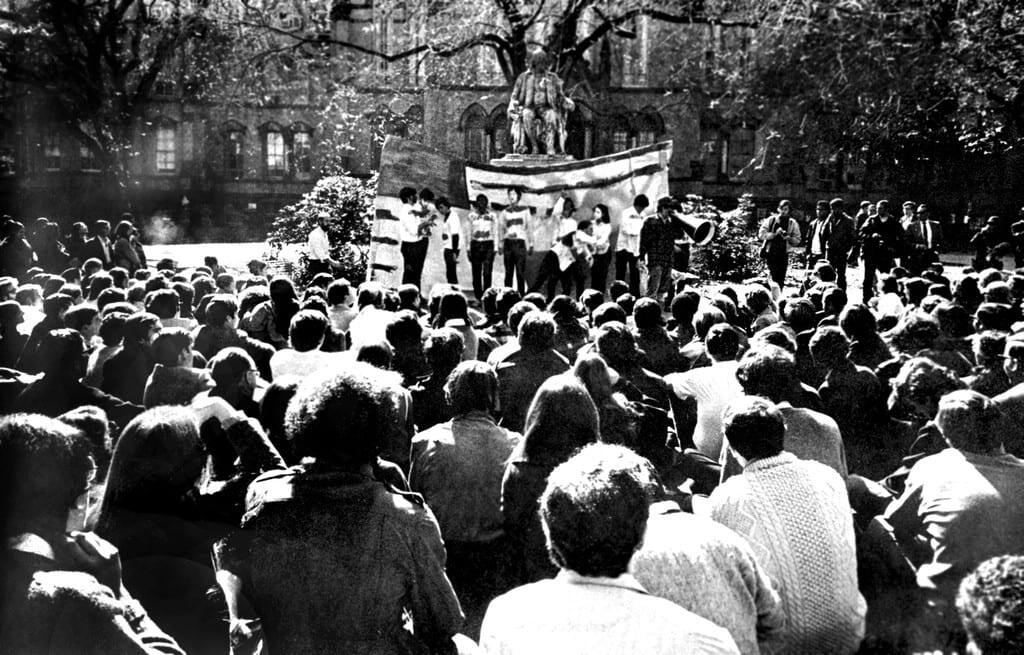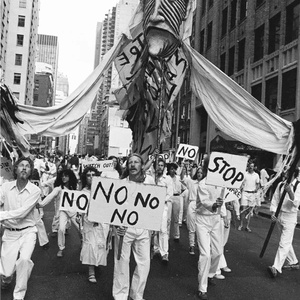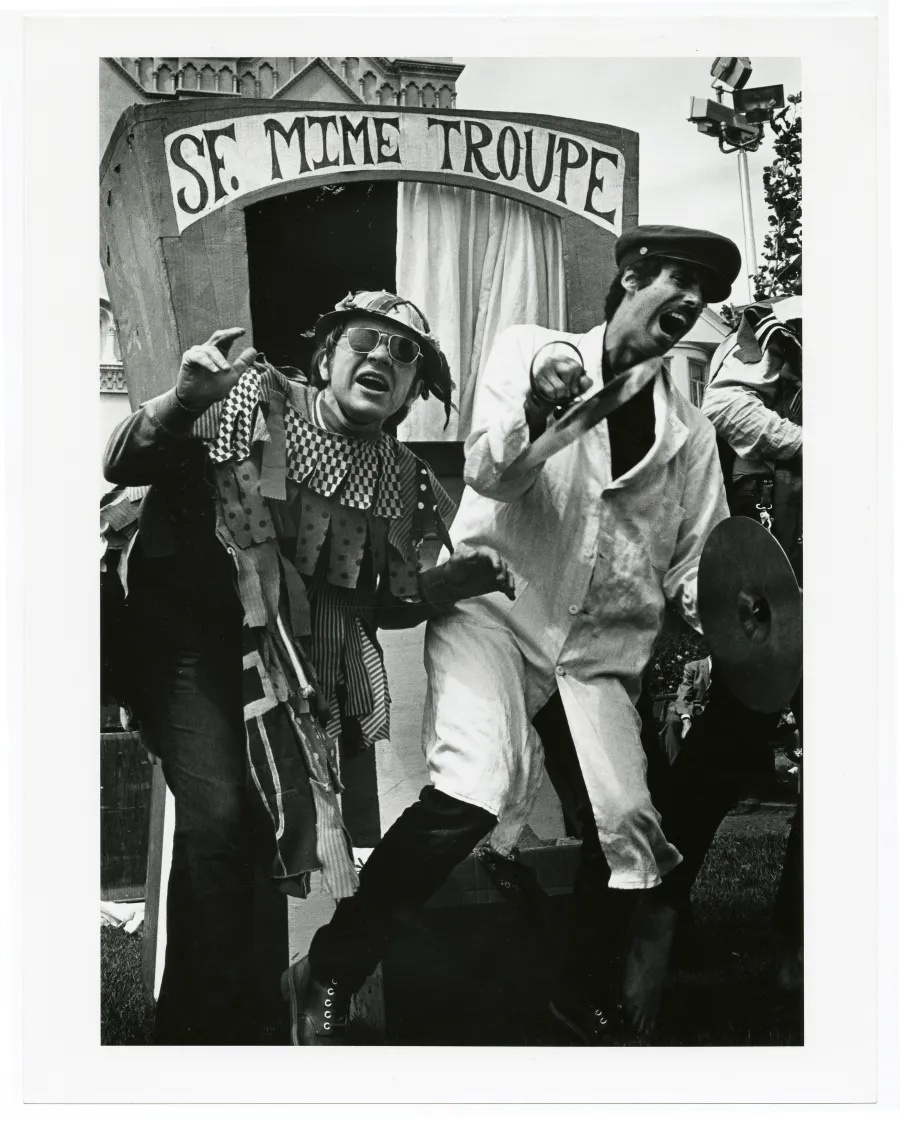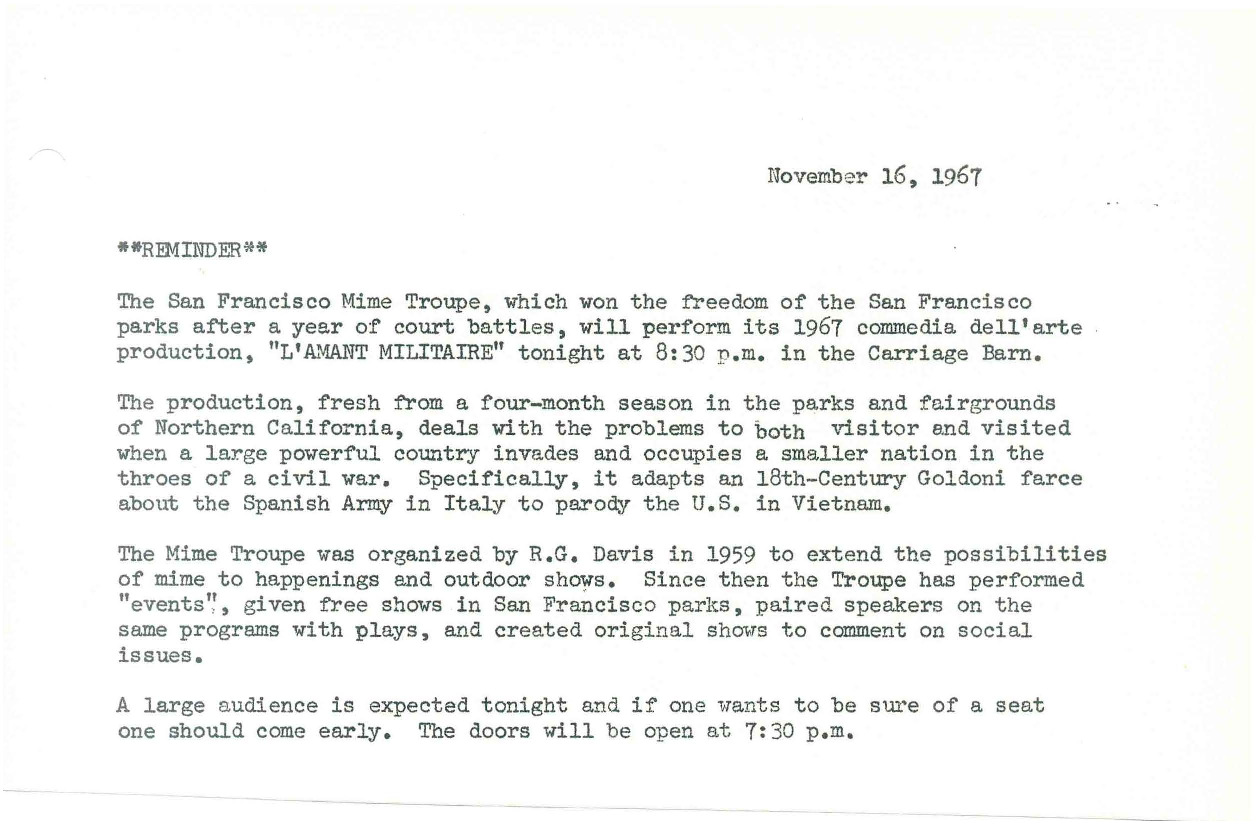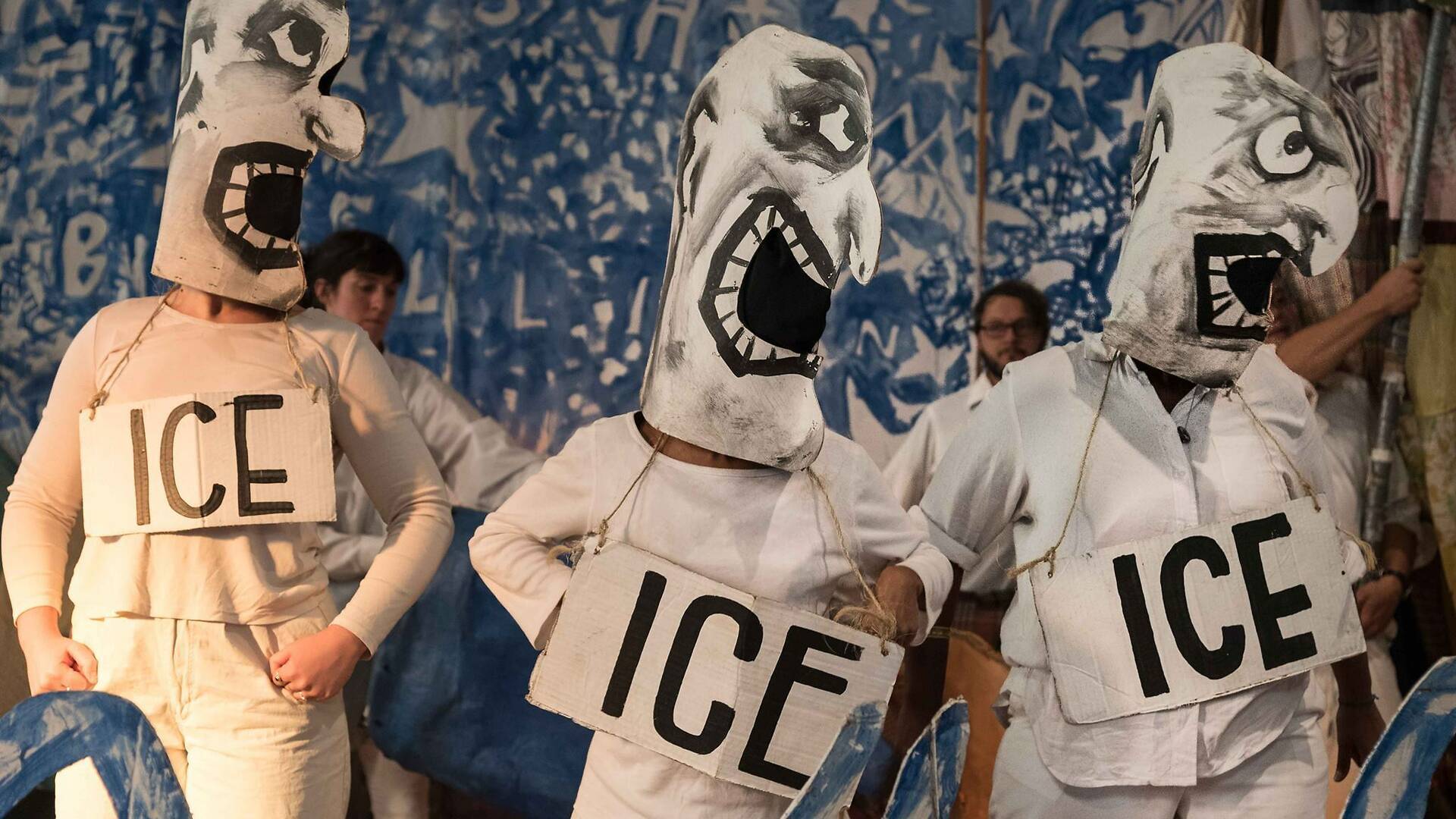Guerrilla Theater
Origins of Guerrilla Theater
Guerrilla theater started in the late 1950s and early 1960s from avant-garde theater groups who were looking for outlets to express their anti-war sentiments as well as show solidarity with the civil rights movement. The term guerrilla theater was coined by Peter Berg, who was a member of a radical theater group known as the San Francisco Mime Troupe. An essay published by the Mime Troupe’s founder, RG Davis, states that the name was inspired by the Che Guevara quote, “The guerrilla fighter needs full help from the people of the area.... From the very beginning of the struggle he has the intention of de- stroying an unjust order and therefore an intention, more or less hidden, to replace the old with something new.” In addition to the relation to Che Guevara, guerrilla also alludes to the guerrilla warfare tactics the Northern Vietnamese were using in the Vietnam War. The term signifies the unity between the radical theater in the US and the actions in the war abroad.
The San Francisco Mime Troupe was established in 1959 and was one of the first major guerrilla theater groups in the US. RG Davis felt compelled to create this group because he thought that traditional theater was “bourgeois.” The Mime Troupe gained notoriety and even traveled to Bennington College to perform L’Amant Militaire on November 16, 1967. L’Amant Militaire was a play written in 1751 that was reworked to satirize the Vietnam War.
Bread and Puppet Theater
Another radical theater group that formed during the Vietnam War was the Bread and Puppet Theater company. The group was founded in 1963 by Peter Schumann and they were known for putting on performances with large puppets in New York City. Schumann created the group with the intent to make political statements about the war and the government. Schumann felt that the large puppets would attract people to watch the group. The spectacle meant that many people were more willing to watch the performance in the streets than listen to an anti-war activist give a speech.
The Bread and Puppet Theater was known for being against the Vietnam war from its establishment. They held some of the earliest protests against the war in New York and had protests for other social issues in 1965 and 1966. The group gained notoriety from their play Fire, which was about the Vietnam War. The play depicts a Vietnamese village during the war and used their signature papier-mâché puppets to act.
Charlotte Albright talked about how the Bread and Puppet theater was an inspiration to her during college.
“It was anti war with these giant puppets and, you know, Nixon puppets and then suddenly Nixon walks in and everybody dies, you know, that sort of thing. That was influential on us. They did make a stop at Williams [College].” – Charlotte Albright
Charlotte Albright's Experience
By the time Charlotte arrived in 1968, Bennington had already been the site of many anti-war protests. Charlotte joined a theater program that had hosted the revolutionary San Francisco Mime Troupe. Charlotte described her participation in theater as the main source of her anti-war activism. Charlotte said that she participated in die-ins and more generally made anti-war theater. Die-ins are a form of nonviolent protest where people lie on the ground and pretend to be dead.
"We were taking our protest to the streets and then somehow turning it into theater and I can't exactly describe it, you'd have to be there. But I can tell you that we had things thrown at us by more right wing folks in the streets who would come out and throw apples or whatever they had." – Charlotte Albright
Impact of Guerrilla Theater
Over 50 years later, Guerrilla Theater remains an important historical part of the anti-Vietnam War movement. However, some critics argued that it had little to not effect on the actual outcome of the war. John Bell, a historian and Bread and Puppet Theater member, wrote that “There is a kind of contradiction here, which often frustrated goal-oriented political activists who, one might think, would be the best audience for political theater. Such activists can object to the fact that Bread and Puppet’s political theater does not ‘preach’ to its audience, but the fact that it doesn’t saves its integrity as art.” One of the challenges of guerrilla theater was balancing the artistic goals of making art more available for the normal person while also sending a strong political message. While guerrilla theater has its critics, it still remains prominent today. The Bread and Puppet Theater has relocated to Vermont where they now do plays about global warming and other contemporary political issues, remaining true to their original goals of creating political change.

